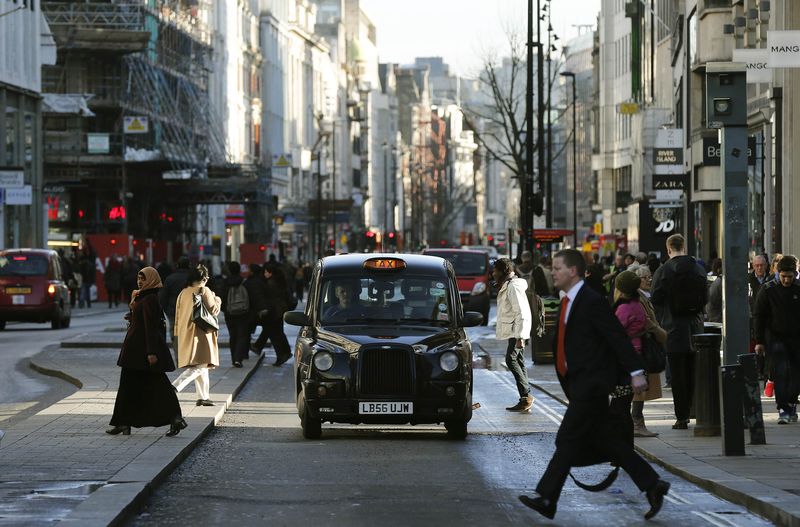Investing.com – Activity in the U.K. service sector eased more than expected in February, falling back for a second straight to hit a five-month low and dampening optimism over the British economy as the sector makes up approximately 80% of gross domestic product, industry data showed on Friday.
In a report, market research group Markit said the seasonally adjusted Markit/CIPS services purchasing managers’ index (PMI) dropped to 53.3 last month from a reading of 54.5 in January.
Analysts had expected the index to fall to 54.1.
On the index, a level above 50.0 indicates expansion in the industry, below 50.0 indicates contraction.
Markit indicated that it was the slowest expansion in business activity since September 2016.
The report also highlighted that there was a softer rise in new work, although business optimism remained strong.
However, input cost inflation reached an eight-and-a-half year high.
“A further slowdown in UK business activity growth in February adds to evidence that the economy has lost momentum after the impressive expansion seen at the end of last year,” Markit chief economist Chris Williamson said in the report.
Combined with the other PMI surveys from manufacturing and construction, Williamson said the data points to growth of just 0.4% for the first quarter.
“Weaker consumer spending was a key cause of slower service sector growth, suggesting that household budgets are starting to crack under the strain of higher prices and weak wage growth,” this expert explained.
Williamson also noted that the ongoing upturn in costs suggested that inflation could likely breach 3% over the course of the next year.
Regardless, he suggested that the slowdown would give the Bank of England (BoE) ammunition to suggest that additional policy stimulus was needed.
“Policymakers are therefore likely to continue to stress the need to look through any further upturn in inflation and focus instead on the need to keep policy accommodative in the face of a likely further slowing in the pace of economic growth in 2017,” Williamson concluded.
Immediately following the report, the pound weakened. GBP/USD was trading at 1.2229 from around 1.2257 ahead of the release of the data, EUR/GBP was at 0.8607 from 0.8582 earlier, while GBP/JPY traded at 139.73 compared to 140.11 previously.
Meanwhile, European stock markets traded lower, with London’s FTSE 100 falling 0.26%. The Euro Stoxx 50 lost 0.24%, France's CAC 40 traded down 0.15%, while Germany's DAX shed 0.47%.
